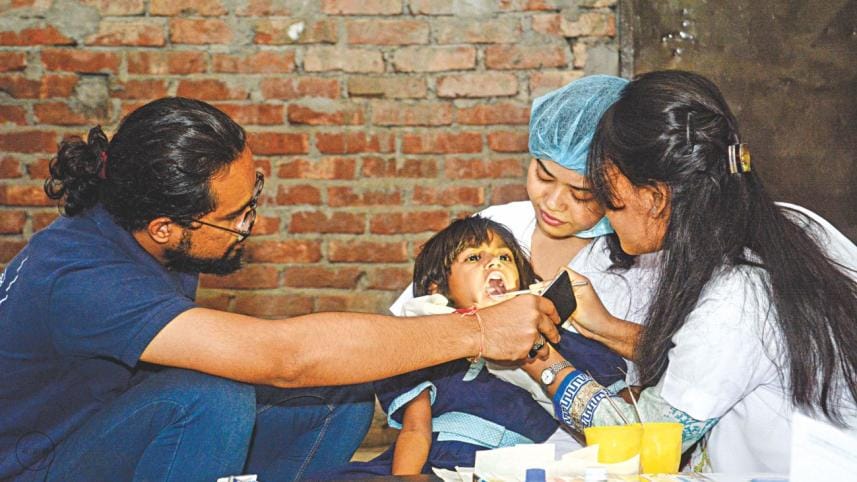AMAL Foundation: Extending a hand to the underprivileged

AMAL Foundation has been working with underprivileged communities to empower and educate them, as well as provide healthcare and shelter in emergency situations such as natural disasters, since 2014. The organisation has grown rapidly since its inception, attracting hundreds of members and supporters from across the globe.
With people struggling to access appropriate healthcare in Sonpocha, Bogura, AMAL is working to meet their medical needs. While explaining the present difficulties in Sonpocha, founder and director of AMAL Foundation, Esrat Karim Eve mentioned, "Limited access to healthcare and high costs threaten people. They have to travel 3 hours to avail treatments, which sometimes results in deaths before they can get any medical help. In some villages, basic medicines are rarely available. A serious shortage and unequal distribution of qualified health personnel are some of the main reasons for high death rates in this area."
With healthcare being an expensive resource, AMAL Foundation has facilitated a community healthcare centre. Though Esrat believes it is only a small effort, this health centre is currently focusing on ensuring people's wellbeing by conducting regular check-ups twice a week. Free medication is provided to patients as required. Two doctors and a menstrual hygiene trainer are available for local people to seek medical advice.
"Doctors generally visit twice a week. However, they do come in on emergency calls as well. We provide hygiene tutorial to women once a week to improve their knowledge regarding menstrual hygiene and birth control. Sessions on child and adult nutrition are also organised regularly," added Esrat.
With over 300 AMAL volunteers, the foundation is also working to support the Rohingya refugees with food, clothing, and shelter. They also run AMAL Ucchash School along with Rowshan Ara Skill Centre at Sonpocha for the children.
While discussing their future plans, Efrit Karim, CEO of AMAL Foundation said, "We believe in a Bangladesh where we are all equal, irrespective of wealth, religious identity and class."
She further asserted the importance of impartiality in social work by saying, "If everyone embraced equality, we can have a shot at a beautiful and sustainable world."



 For all latest news, follow The Daily Star's Google News channel.
For all latest news, follow The Daily Star's Google News channel.
Comments